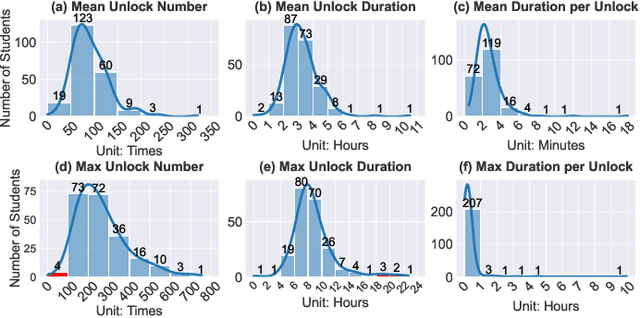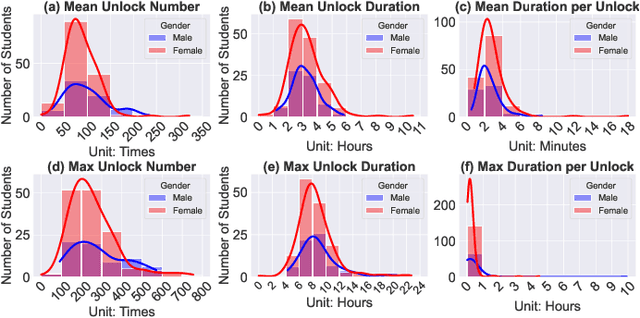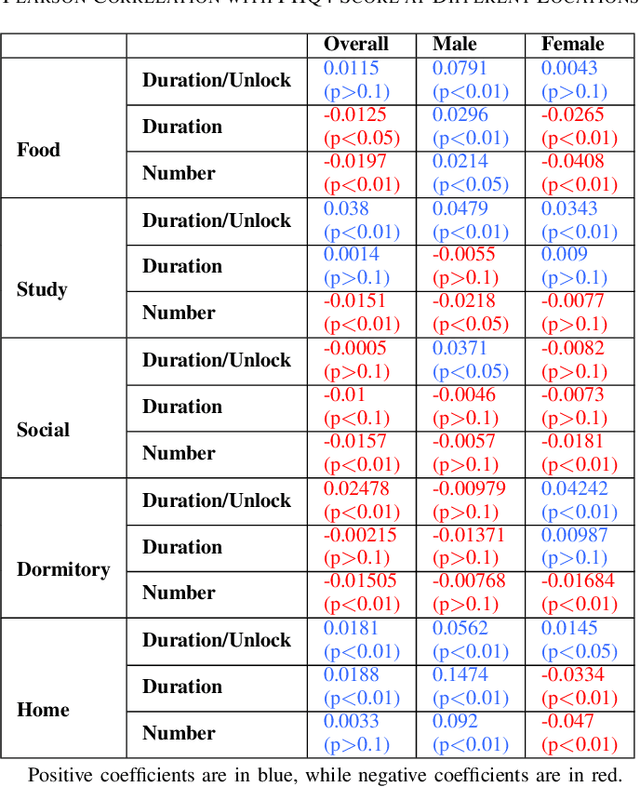Unlocking Mental Health: Exploring College Students' Well-being through Smartphone Behaviors
Paper and Code
Feb 12, 2025



The global mental health crisis is a pressing concern, with college students particularly vulnerable to rising mental health disorders. The widespread use of smartphones among young adults, while offering numerous benefits, has also been linked to negative outcomes such as addiction and regret, significantly impacting well-being. Leveraging the longest longitudinal dataset collected over four college years through passive mobile sensing, this study is the first to examine the relationship between students' smartphone unlocking behaviors and their mental health at scale in real-world settings. We provide the first evidence demonstrating the predictability of phone unlocking behaviors for mental health outcomes based on a large dataset, highlighting the potential of these novel features for future predictive models. Our findings reveal important variations in smartphone usage across genders and locations, offering a deeper understanding of the interplay between digital behaviors and mental health. We highlight future research directions aimed at mitigating adverse effects and promoting digital well-being in this population.
 Add to Chrome
Add to Chrome Add to Firefox
Add to Firefox Add to Edge
Add to Edge